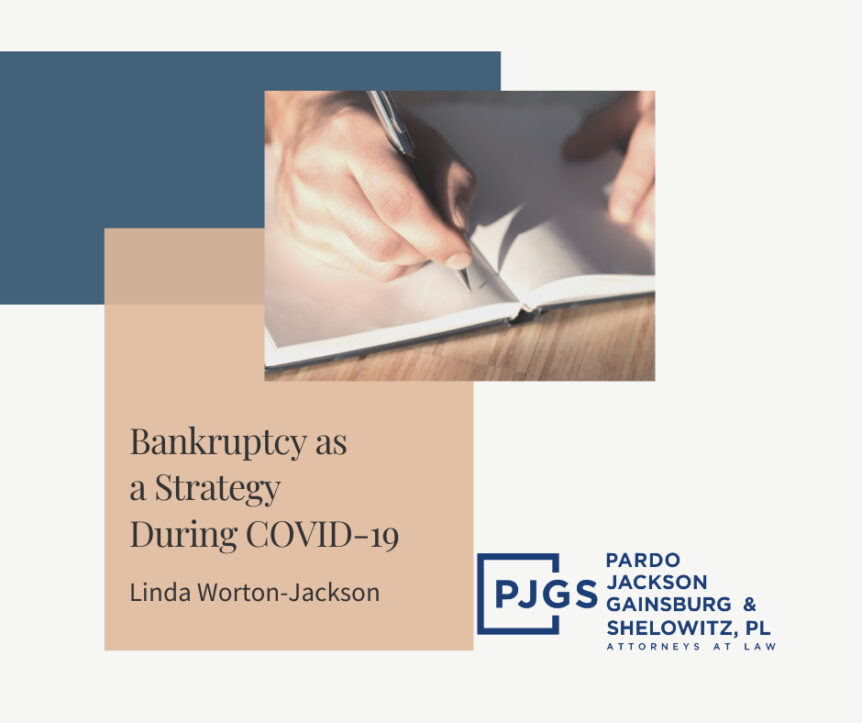By Linda Worton Jackson
Author’s note: Recently, I collaborated with Overproof to present a webinar about how businesses in the hospitality and beverage alcohol industry could better prepare for the legal and economic impacts of COVID-19. The information below was included in that webinar, as well as additional insights. You can view a recorded version of the presentation here.
As the COVID-19 pandemic continues to put financial stress on businesses and individuals throughout the world, it is more important than ever to know what your options are and what strategies will provide you with the best solutions. While bankruptcy tends to have a negative connotation that causes it to be viewed as a sign of defeat or failure, it can be an effective tool that helps both individuals and businesses regroup and successfully move forward.
Types of Bankruptcy
There are three different types of bankruptcy: Chapter 11, Chapter 7 and Chapter 13.
You probably have heard about major brands such as Macy’s and Kmart filing for Chapter 11 bankruptcy and been left wondering how they are still around. Chapter 11 is a re-organizational type of bankruptcy that allows you to keep your doors open and restructure debt.
Chapter 11 has many strategic advantages. For example, you are still in full control of all of your assets and you operate the business. If you are in the middle of any lawsuits or being pursued by lenders or landlords, all of these activities will be put on pause while you regroup. Typically, this means setting up a different repayment schedule with a plan. Sometimes unsecured debt can be paid pro rata for each dollar owed, debts can be paid with company stock or parts of the company can be sold off. Ultimately, Chapter 11 is designed to provide businesses with more flexibility and breathing room as they get their finances under control.
Chapter 11 is subject to a lot of rules, and any changes will need to be court approved, so you will need a lawyer to help you navigate those legal proceedings. In addition, you will be required to make many disclosures about your finances and business practices, which can be uncomfortable.
With Chapter 7, you are choosing to close your doors and completely wash your hands of the business. All assets are liquidated by a trustee who takes over and decides who gets paid and how much they will receive.
Chapter 13 is similar to Chapter 11, but on a much smaller scale. This option is limited to those with up to $1.1 million in secured debt and $389,000 in unsecured debt. The applicant also must have some sort of income to be eligible.
While you might not be planning to file for bankruptcy any time soon, it is important to talk to your attorney to ensure that you fully understand your rights and responsibilities to be prepared. The rules regarding all types of bankruptcy are very specific and investing in some planning may affect the way you spend and handle your cash now, so you will want all the information possible. For some, bankruptcy may be a viable strategy for helping their business survive the financial strain of COVID-19.
Editor’s note: To watch Overproof’s webinar, How to Prepare for the Economic & Legal Impact of COVID-19, with a presentation by Linda, click here. For more information contact Linda Worton Jackson at ljackson@nullpardojackson.com or visit pardojackson.com

